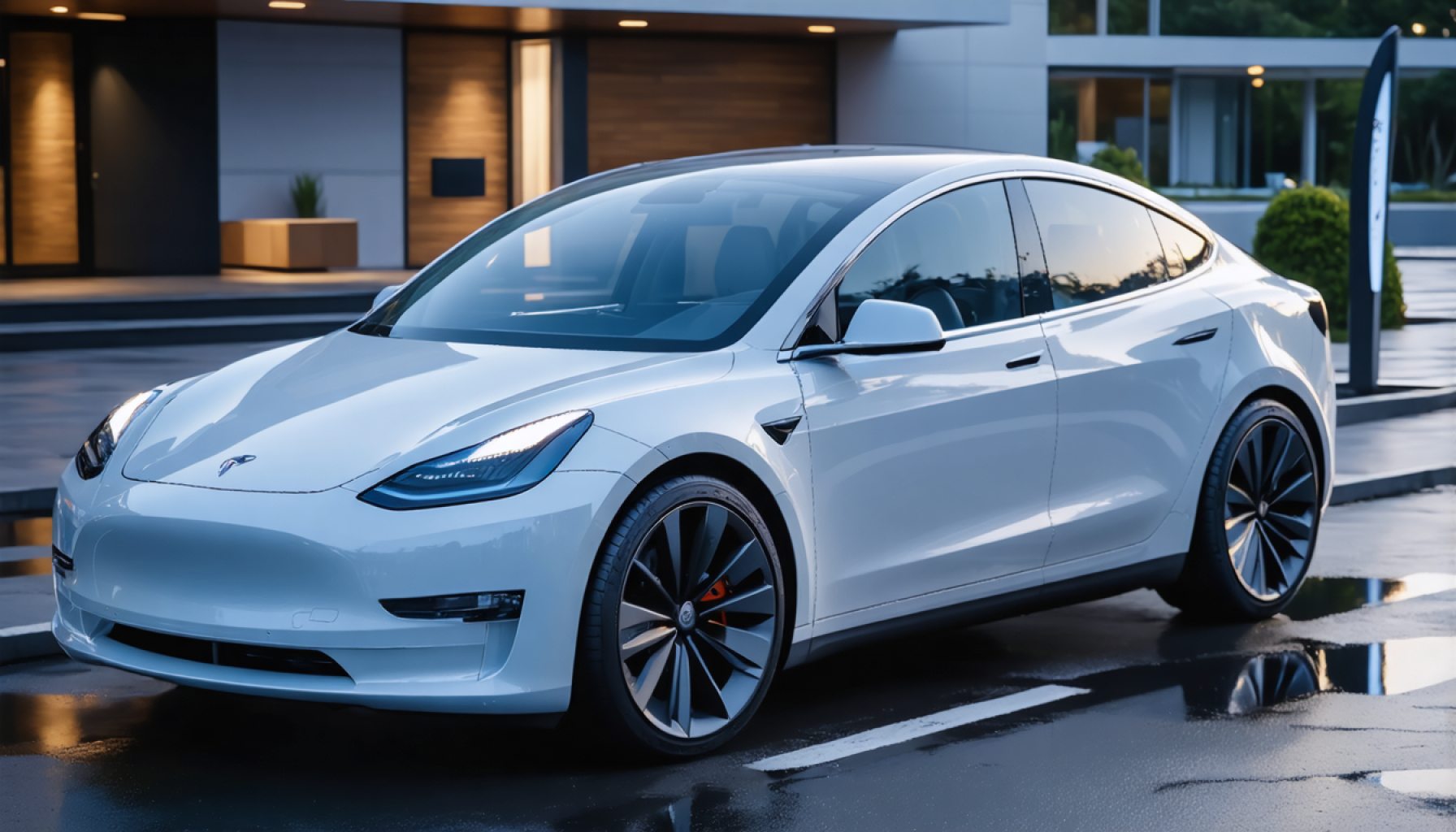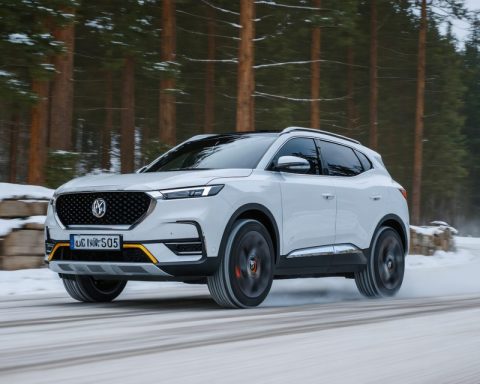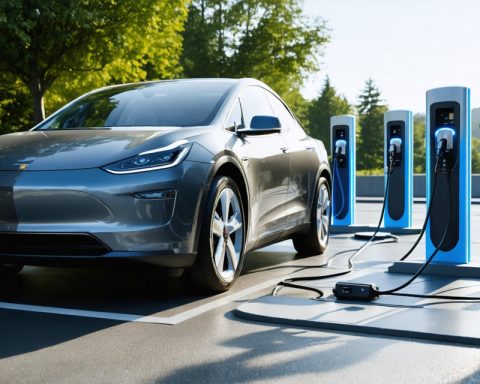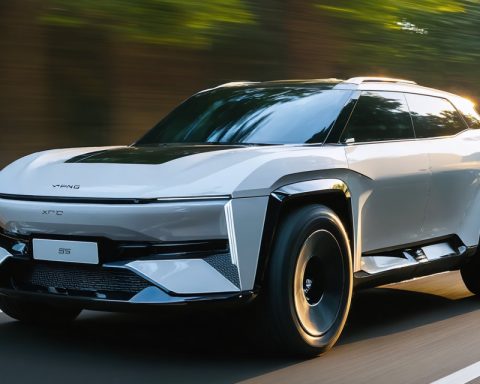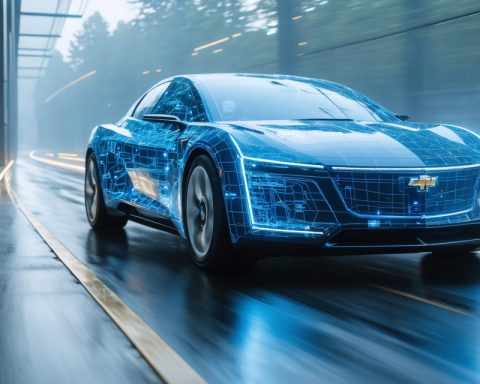- Michael Jordan’s non-political stance contrasts with Elon Musk’s controversial involvement, impacting Tesla’s market stability.
- Tesla experiences significant sales declines: 40% in Europe, 11% in the US, and competitive pressures in China.
- BYD emerges as a strong competitor with its innovative Super-E platform, leading to an 88% stock increase.
- Volkswagen gains from Tesla’s European sales slump, with heightened registrations of its ID.4 lineup.
- Toyota balances technology and tradition, focusing on plug-in hybrids to attract hesitant EV buyers.
- Honda expands with electric vehicles like the Prologue and CR-V e-FCEV, maintaining its market growth.
- The EV market’s fluctuations highlight the importance of adaptability, innovation, and strategic foresight for success.
Michael Jordan once sidestepped the political spotlight, allowing his iconic basketball shoes to carve a path to success. Meanwhile, Tesla’s CEO Elon Musk has flirted with controversy, and not without consequence. As Tesla’s shares tumble by over 32% this year, Musk’s involvement in politics has seemingly thrown a wrench in the gears of Tesla’s electric vehicle (EV) sales machine.
In Europe, Tesla has hit a setback with a staggering 40% decline in sales, swimming against the current of a 26% surge in overall EV demand. In the US, Tesla’s January showed a grim 11% drop, and over in China, Tesla finds itself outpaced by a formidable local competitor for the first time. Yet, as one titan stumbles, others rise to seize the opportunity.
BYD Company Ltd., a stealthy giant in EV innovation, is making waves with a groundbreaking Super-E platform that promises a charge time so quick it nearly defies belief—a mere five minutes for 249 miles of range. Buoyed by hefty sales and favorable policies in China, BYD’s prowess reflects a potent mix of innovation and strategic poise, helping its stock soar 88% over the past year.
Volkswagen, an enduring stalwart from the heart of Germany, is also benefiting from Tesla’s faltering steps. As European sales of the Tesla-brand vehicles stagger, Volkswagen’s EV lineup, particularly the ID.4, is revving into high gear with skyrocketing registration figures. With its stock beginning to rebound from a multi-year dip, Volkswagen is positioned to ride a wave of momentum magnified by upcoming German stimulus measures.
Meanwhile, Toyota Motors, the world’s largest car manufacturer, opts for a savvy balance of technology and tradition. By embracing plug-in hybrids, Toyota sets its sights on a middle lane with vehicles like the RAV4, deftly blending electric efficiency without abandoning trusted combustion engines. With solid margins and an undervalued stock, Toyota’s strategy might just convert Tesla customers not yet ready for the pure electric plunge.
Not to be outdone, Honda Motor Co Ltd. showcases a similar dexterity with a portfolio of reliable and versatile vehicles. Known for reliability, Honda introduces electric options like the fully electric Honda Prologue and the fuel cell-powered CR-V e-FCEV, making stock-watchers eager to see if Honda can maintain its upward climb past previous resistance levels.
The decline of Tesla presents an almost cinematic shift within the electric vehicle sector. As these challengers make their move, they embody the vibrancy and volatility of a market in flux. Investors would do well to watch how these companies harness this momentum—or if they too will be left to charge up from the sidelines. In this race, adaptability, innovation, and strategic foresight remain the golden keys to driving forward.
Elon Musk’s Political Gambit and the Shifting Sands of the Electric Vehicle Industry
Overview: Tesla’s Tumult and Market Dynamics
The electric vehicle (EV) giant Tesla, under the leadership of the enigmatic Elon Musk, is facing significant challenges. Tesla’s stock price has plummeted by over 32% this year amid Musk’s controversial political engagements. In Europe, Tesla experienced a drastic 40% drop in sales, deviating from the overall 26% increase in EV demand. Similarly, in the US and China, Tesla’s sales encountered headwinds, prompting industry observers to speculate on Musk’s influence on these trends.
New Market Entrants and Innovations
BYD Company Ltd.
BYD Company Ltd. is making significant strides in the EV market with its groundbreaking Super-E platform. This platform enables a record-breaking charge time, replenishing 249 miles of range in just five minutes. This innovation not only disrupts the EV industry but also capitalizes on the favorable policies in China. As a result, BYD’s stock has surged by 88% over the past year.
Volkswagen’s Strategic Push
Volkswagen’s EV lineup, including the popular ID.4, is gaining traction as European Tesla sales falter. With German stimulus measures on the horizon, Volkswagen aims to reclaim its market share. The company’s stock is recovering from a multi-year slump, poised for potential growth.
Toyota’s Dual Approach
Toyota excels with its hybrid technology, offering plug-in hybrid models like the RAV4. This approach caters to consumers hesitant to fully embrace electric vehicles. Toyota’s balance of electric efficiency and conventional combustion engines, coupled with a solid financial outlook, positions it well to capture market share from Tesla.
Honda’s Electric Expansion
Honda is introducing new electric options, such as the Honda Prologue and the CR-V e-FCEV. Known for its reliability, Honda awaits investors’ responses to its attempts at overcoming previous hurdles. Honda’s expansion into electric vehicles could redefine its market position if executed effectively.
Industry Insights and Predictions
Market Forecasts and Trends
The global EV market is projected to grow exponentially, with significant contributions from emerging markets and technological advancements. Firms like BYD and legacy automakers such as Volkswagen and Toyota are expected to benefit from policies promoting sustainable transportation, while Tesla continues to navigate its political terrain and competitive landscape.
Security and Sustainability
As EV technology evolves, cybersecurity and sustainable sourcing of battery materials remain crucial areas. Manufacturers are investing heavily in these areas to address environmental concerns and ensure vehicle safety.
Pressing Questions and Actionable Recommendations
Is this a Permanent Decline for Tesla?
While Tesla faces challenges, its brand loyalty and technological prowess are substantial. However, investors should remain cautious and observe how Tesla addresses its political and market challenges.
How Can Investors Capitalize on These Shifts?
Investors can consider diversifying their portfolios by investing in other promising EV manufacturers like BYD, or traditional automakers that are innovating within the space, such as Volkswagen and Toyota.
What Does This Mean for Consumers?
Consumers benefit from an increasingly competitive market that lowers costs and expands options. Exploring hybrids, fully electric, and fuel-cell vehicles offers choices that align with sustainability goals and personalization needs.
Conclusion
The evolution of the electric vehicle sector highlights the importance of adaptability and innovation. As the market shifts, consumers and investors stand to benefit from reduced prices and enhanced technologies. Staying informed and being open to new market opportunities will be essential in navigating this dynamic landscape.
For more on electric vehicle market trends and company strategies, visit BYD, Volkswagen, Toyota, and Honda.
